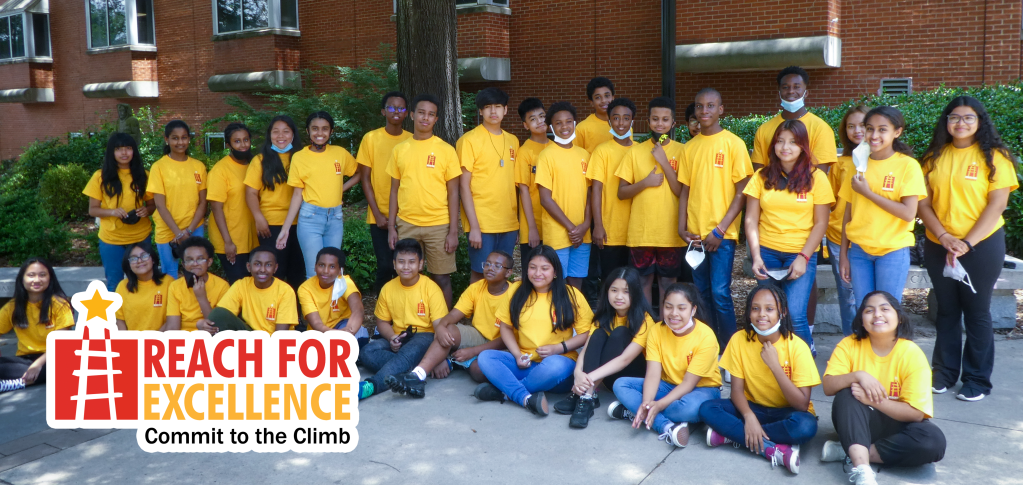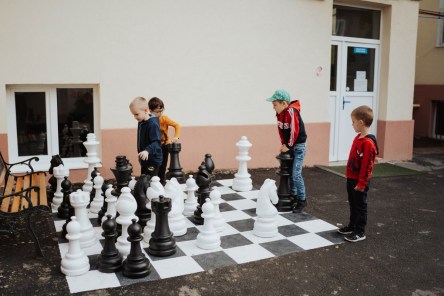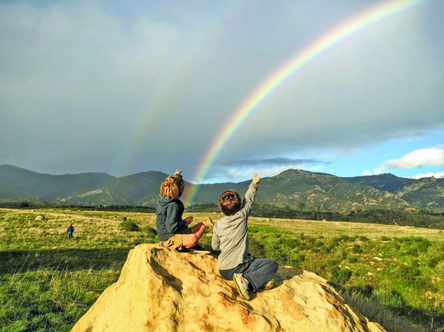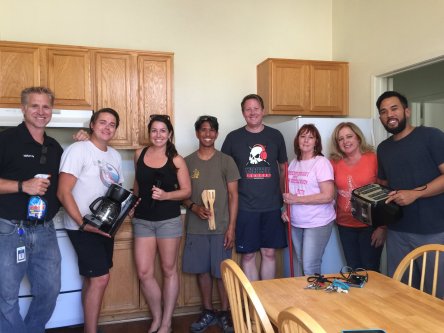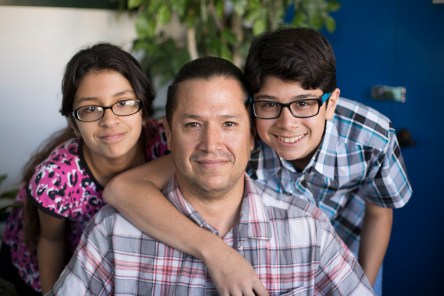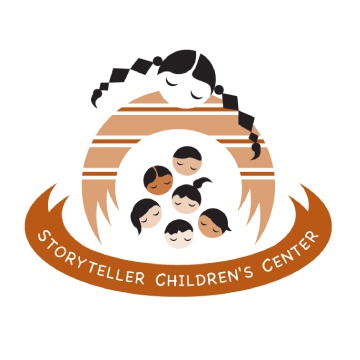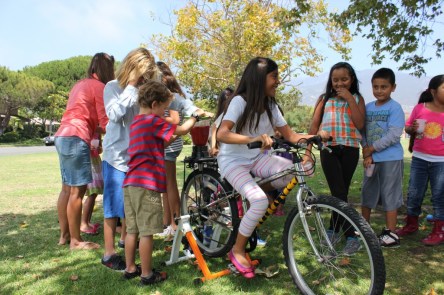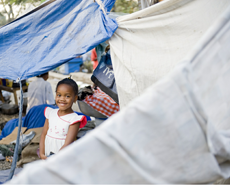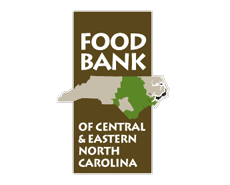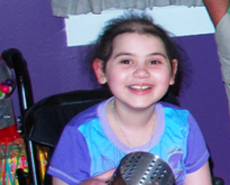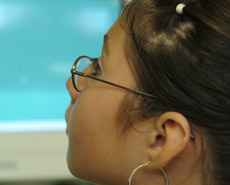Yardi is committed to supporting the community in every city where our offices are housed. Each year, the company distributes philanthropic aid to organizations selected by its employees.. Get to know Reach for Excellence, an Atlanta-based nonprofit that serves middle-school children through educational enrichment. Founded in 2001, the mission of Reach for Excellence is to empower determined leaders and expand their possibilities in the classroom, in the community, and in life. Reach for Excellence is a tuition-free academic and leadership enrichment program that offers students of limited income a mix of academic, cultural, and community-based experiences that prepare them for the challenges of college-preparatory programs and high schools. Director of Development Matt McGee shares: “While there are many worthwhile educational enrichment programs in the Atlanta area, Reach for Excellence is one of the few that focuses on middle school-aged children. Research from ACT found that the academic achievement students attain by eighth grade significantly impacts college and career readiness. Therefore, it is critical for this age group to gain exposure to the academic and leadership skills necessary to succeed in high school, college, and beyond.” Program offerings Reach for Excellence keeps students focused on learning by engaging young scholars in academic and leadership enrichment classes over six weeks during the summer. The program continues throughout the school year with 16 Saturday sessions. Two hot meals are provided each day in the summer, and a hot lunch is provided on Saturdays, ensuring that students are well-fed and ready to learn. Reach for Excellence also provides transportation assistance. “The program requires hard work, commitment, and discipline, but the rewards can last a lifetime,” says McGee. He shared the story of Jocelyn Calvillo, a Reach for Excellence student who later became an attorney. “Jocelyn was eager to join Reach, but her parents were concerned about maintaining a commitment to attend classes on Saturdays and during the summer. She had three siblings, and both parents worked demanding schedules. Transportation to the program would be an issue. Her parents recognized the importance of education and worked with Reach and other families to negotiate Jocelyn’s transportation,” McGee shared. But once she was able to attend, “It was comfortable to be in an environment with kids from similar backgrounds, and she never felt like she was less than her peers. She recalls that there were always books available and visited Reach’s library often. She loved reading and was good at math, a big part of the Reach curriculum,” said McGee. Calvillo ultimately attended high school at Atlanta’s Marist School in Atlanta, Agnes Scott College, where she majored in political science and Spanish, and Mercer University’s Walter F. George School of Law. She now helps her community as an immigration attorney with Catholic Charities Atlanta, an organization that helps families to overcome barriers and achieve self-sufficiency. “Jocelyn believes that Reach for Excellence opens doors and helps students succeed despite all the barriers they face. Seeing all that her fellow Reach classmates have accomplished, she believes Reach students will change the world,” said McGee. Future goals In 2022 and 2023, Reach for Excellence is working to offset the impact of the pandemic on students’ academic growth. The pandemic has taken a particular toll on the education of children in low-income families. Research from Georgia State University recently found that many students in the Metro-Atlanta area experienced reductions in academic growth over the last two years. The math and reading achievement reductions were more significant among students who qualify for free or reduced lunch, students of color, and English language learners. All of Reach for Excellence students match these demographics and experienced more significant reductions in academic growth than their peers. “Additionally, Reach for Excellence will expand our enrollment by recruiting new students to our Hispanic Initiative,” shared McGee. “Our new Hispanic Initiative seeks to strengthen college enrollment and completion among Latinx students by providing academic enrichment and college...
Educalise Association...
Aiding Romania's Youth
Yardi is committed to supporting the community in every city where our offices are housed. Each year, the company distributes philanthropic aid to organizations selected by its employees. In 2021, Yardi offices supported more than 350 nonprofits worldwide. For the remainder of the year, we will be bringing you the stories of those organizations and insight into how they aid their communities. Today we bring you across the world and introduce you to Educalise Association, founded in 2019 in Cluj-Napoca, Romania. Educalise is a non-governmental organization (NGO) that focuses on the education and health of children and social projects for special needs patients, including: Education: training and workshops, equipping schools and after-school facilities with IT equipment, furniture, and other goods such as painting, restoration, and re-decoration of school facilities and yards.Health: equipment for children’s hospitals with medical devices, restoration, and re-decoration of children’s hospital facilities and yards, various play-and-learn activities that improve the relationship between child and doctor, and educating children on what to expect when they receive medical care.Social: support to children with special needs and holiday campaigns. “Education is however key to all our activities; therefore, we include an educational component even in health and social projects,” shared Cristina Sălăgean, founder of Educalise. Funds from Yardi have been used to finalize The Fairy Stories Garden and a new blood-test room. Check out the video of the day the Cluj Yardi office had here. “What we are planning for the blood-test room is to bring from the U.S. a special chair, where the child and the parent sit on the same chair when blood samples are being taken.” Sălăgean continues, “The chair is the main piece of the room, but it will be accompanied by VR (virtual reality glasses) and other kids-friendly equipment that will...
Developing Leaders
Youth Empowering Parents
For most kids, growing up is riddled with lessons in how to be a good follower. Follow the rules at home. Follow directions at school. Follow the norms of the community in which we live. Youth leadership, however, is widely accepted as a means of instilling responsibility, positive self-image and motivation in kids. Youth Empowering Parents reverses the mentorship dynamic to help kids uncover the leader within. Yardi caught up with Agazi Afewerki, co-founder and executive director of the nonprofit, to learn more about its successful and innovative programs. Millennial Style Agazi co-founded Youth Empowering Parents with his friend in classic . They saw two needs in their Regent Park, Toronto community: adults without access to professional development resources and kids without access to meaningful leadership opportunities. They looked around for support, but they didn’t find what they needed. They then proceeded to spearhead the nonprofit themselves. Learning along the way would be part of the business plan. “It’s how I and a lot of other kids grew up,” says Agazi. “We helped our parents learn. It’s a natural dynamic. So we figured why not put that in a classroom setting? It’s a leadership opportunity for young people and a high quality education for adults and seniors.” With only 11 days of business development behind them, they launched their first class. Its success surprised (almost) everyone. Solving Multiple Problems with One Program On the surface, Youth Empowering Parents fills the gap between adults and the skills needed to thrive in a new world. Many adult participants are first generation immigrants that struggle to transfer their existing knowledge into a country with a new language and rapidly changing technologies. But that’s only one layer of the problems that the nonprofit addresses. Youth Empowering Parents provides personal...
Meals for Kids
Yardi Raleigh + Backpack Buddies
Each day, millions of kids rely on the National Breakfast and Lunch Programs. More than 11.6 million free breakfasts and 20 million free lunches help students reach their potential on school days. Such meal assistance is not available to kids in need on weekends. That’s when the Inter-faith Food Shuttle lends a helping hand. Transforming “Waste” Into Meals Inter-faith Food Shutter is an innovative nonprofit based in Raleigh, N.C. The organization disrupts the standard American food cycle, which is rife with waste. More than 40 percent of food that is grown and processed never makes it to families’ tables. Up to 75 percent of produce, for example, is sent to the trash simply because of its appearance. Rather than throwing away more 6 million pounds of local food, Inter-faith Foo d Shutter reroutes the groceries to homes in need. Food is procured from 350 donors including retail donations, volunteer food drives, commercial field gleaning, and the nonprofit’s teaching farm. Yardi Raleigh Preps Meals for Kids Backpack Buddies, an Inter-faith Food Shuttle program, uses rescued food to feed Raleigh’s youth. The program provides 10-12 pounds of food to children from low-income households. The nutritious food is intended to help children through the weekends when free school meals are not available. Each Backpack Buddies bag includes enough food for six meals and two snacks: two proteins, two vegetables, one fruit, two packs of noodles, two milks, one 100% fruit juice and two snacks. Local volunteers help to stuff the backpacks for delivery. Yardi Raleigh rose to the challenge. The Help Desk community service crew turned their team outing into a volunteer opportunity. Volunteers included Ashley Godshalk, Brian Baker, Doug Thompson, Elliott Arnold, Kelly Haygarth, Michelle Gardner, Nick Gennaro, Rashida Lassiter, Utica Cason and Yolanda Eaton. “Team work...
Building Futures
Women’s Economic Ventures
Women’s Economic Ventures (WEV) offers microenterprise development services to female entrepreneurs in California’s Central Coast. Trainees receive self-employment training through a proprietary curriculum and loans that enrich the diversity of businesses and opportunities in the area. WEV has helped more than 6,500 clients jump start 4,000 businesses. More than $4 million in loans have supported the dreams of borrowers who do not qualify for conventional products. These combined forces have created about 8,000 local jobs. In addition to WEV’s work in the Santa Barbara area, the organization has extended some of its services to women in Texas, Hungary, Nepal, Amman, and Jordan. While great strides have been made since the inception of WEV in 1991, there is still a lot of work to be done to reach economic parity. WEV’s Business Recovery Specialist Nicki Pharr explains, “Women currently own about 38 percent of all businesses, but they generate only 25 percent of the annual revenues as their male counterparts. 71 percent of woman-owned businesses generate less than $25,000 in annual receipts and only 1.8 percent reach a million dollars in annual sales.” Research suggests that confidence and access to capital are two of the main reasons why women fall behind. Pharr says, “Women start businesses with roughly half the capital as men. A growing body of research indicates that confidence is as important as competence as a determinant of success and women exhibit much less confidence than men. We need to close the confidence gap so women don’t opt out of competitive but lucrative opportunities to start scalable businesses in male-dominated fields, and we need to continue to help women acquire the business acumen and skills they need to grow bigger businesses.” WEV in Action Pharr has known that she wanted to connect with WEV ever since...
Opting Outside
WYP Gets Kids into Nature
For Rowan Diloia, the key to childhood learning wasn’t in a classroom or in the pages of a book. It was outside, in the mountains, beaches and creeks of Santa Barbara County. These were places he explored as a child, thanks to a local nonprofit called the Wilderness Youth Project (WYP). Serving kids as young as 3 and into high school, WYP is considered an early pioneer of an educational approach that’s now gaining acclaim nationwide. “It’s such a good alternative to staring at a phone, computer or tablet screen. Instead, let’s go outside, build a fort, learn how to make fire with two sticks and build a water filtration system,” Diloia said. When he was in the first grade, his parents enrolled him in the WYP, which was at that time an after-school program. They immediately noticed it made a difference for their son, who struggled with dyslexia and ADHD. “One of the grounding areas of his early life was the Wilderness Youth Project and their ability to bring him out into the wilderness and outside of his head,” said Tony Diloia, Rowan’s father. “A lot of after-school (programs) my parents tried didn’t really work for me,” Diloia said. “Most were a little too structured. But to be able to do my own thing at Wilderness Youth, go out in the dirt and climb trees, really helped.” When he entered high school, Diloia was accepted to the Visual Arts & Design Academy at Santa Barbara High School. He is now a senior at California College of the Arts in San Francisco, where he is studying furniture design. He recently won a prestigious national award from the John F. Kennedy Center for the Performing Arts in Washington, D.C., for his functional art. Diloia said...
Positive Change
Fighting homelessness
What if you could help to end family homelessness? Not just through a single meal or a temporary residence but through a life-changing and habit-altering program for determined adults? Yardi employees in San Diego were able to do just that by volunteering with Solutions for Change. Vista, California is home to Solutions for Change, one of the nation’s only full service programs to end homelessness. To date, the organization has empowered 850 families in the San Diego area including 2,200 children. Solutions University is the key to the program’s long-term success. The university integrates affordable housing, job training, education, and wellness services. Participants work, pay rent, and attend educational classes that reinforce self-sufficiency. In about 1,000 days, participants can complete the program and emerge ready to end homelessness in their families for good. It is an empowering and effective program that has changed lives since 1999. Yardi participated in a home preparation project for Solutions University graduates. Before the official on-site project, Yardi San Diego team members prepared by collecting donations of much needed items. Cleaning supplies composed most of the donations as well as gift cards for additional home supplies. Team members also donated gift cards for the residents that would allow them to better equip their new apartments. For the on-site event, Yardi employees Melissa Krautwald, Larry Galang, Karen Detmar, Kathy Bretado, Tyler Dalsted, Louie Arzaga, Melissa Krautwald, Jeremy Hoover and Dave Chmelka volunteered. The team helped to “turn units” in preparation for two Solutions University families. Volunteers scrubbed bathrooms, mopped floors, and cleaned windows, walls, doors and door jams. Solutions for Change provided new dishware that the volunteers cleaned and stored. The units went from drab to fab in about three hours. “It was powerful to see some of the families that...
Transition House
Safety + Shelter + Success
There is something special about nonprofit galas: the glitz, the big names, and the buzz of fellowship in the air. But how special would it feel if the gala didn’t exist at all? What if all of a nonprofit’s funds were directed to the people who need it most? Transition House explores the no-ball fundraiser concept with Help-a-Kid No-Ball. Transition House in Santa Barbara provides housing and services for families facing housing insecurity. Heather Stevenson, Grants Manager at Transition House, has seen hardworking families lose everything. “In Santa Barbara, the cost of living is so high that people without a safety net or family support can lose everything when an unexpected crisis occurs,” she said. “A job loss or a medical emergency might be all that stands between a family that is already poor and homelessness.” She recalls a family that arrived to transition house several years ago. The father, a roofer, was unable to earn pay during one rainy winter month. Though he had part of his rent payment for the next month, he lacked $430. The family lost their apartment as well as all of their possessions. Transition House was there to help. The non-profit offers emergency shelter, transitional and permanent housing, as well as homelessness prevention services to promote long term stability. Each family obtains the essentials such as three meals each day, clothing and reliable shelter. Case managers and a career development specialist work together with heads of household to improve money management skills, education, and employment preparation. Since the organization exclusively serves families with children, about 60 percent of its residents are under the age of 18. When children enter Transition House, they are able to participate in uplifting programs and interventions that may provide the care and stability...
Storyteller SB
Turning Another Page
Since 1988, Storyteller Children’s Center has helped Santa Barbara’s homeless and at-risk toddlers achieve kindergarten readiness. Therapeutic preschool and support services provide students will the skills needed to beat the odds and excel. Since our previous article, Storyteller has grown. The second location and its staff are thriving. Even with the second location, the center has a waitlist for enrollments. In 2014, the waitlist averaged 80 families. This year, the waitlist has 144 families. The demand for Storyteller services continues to rise as local families struggle with homelessness, food security, and access to fundamental necessities. More than 90 percent of families serviced live below the 2017 Federal Poverty Guideline of $24,600 for a family of four. Delene Bliss, Director of Development at Storyteller, understands the conditions in which many students live. “That’s not a livable wage,” Bliss said. “That’s just the federal poverty guideline but that wage makes living very, very difficult in Santa Barbara.” About 56 percent of Storyteller families are single income, single parent households. Shelters or crowded, shared residences are what 53 percent of students call home. In addition to precarious living conditions, 43 percent of children strive to learn while managing developmental delays or disabilities. Without the help of Storyteller, these children would risk falling farther behind than their peers. The small classroom settings and one-on-one attention that students receive at Storyteller increase students’ chances for success. Yet in spite of the odds, Storyteller students are flourishing. Storyteller collaborated with the University of California, Channel Island and the University of California, Santa Barbara to conduct a study of Storyteller graduates. Dr. Michael Furlong of the University of California, Santa Barbara’s Counseling Clinical and School Psychology program led a team of researchers on a quest to determine the long-term effects of...
Picnic in the Park
Foodbank of Santa Barbara County
Millions of kids across the United States rely on school lunch as their affordable, nutritious daytime meal throughout the school year. But what happens when school is out? For many kids, hunger is a tragic condition associated with summer break. Foodbanks across the country are working to end summer hunger. The coordinated effort of nonprofit staff and volunteers serves millions of healthy meals all summer long at locations easily accessible to kids. Parks and playgrounds are prime locations to reach kids in need. Judith Smith-Meyer, marketing communications manager for the Foodbank of Santa Barbara County describes the Picnic in the Park program, which served more than 30,000 lunches in 2017 to kids across the region. “Lunches always include vegetables, fruit, milk, protein and carbohydrates. We serve everything from chef salad, tuna salad, turkey and cheese sandwiches, to plums, apples, yogurt and hardboiled eggs,” said Judith. The lunch menu can often depend on what the Foodbank has in stock. However, the notoriously fickle taste buds of children can also play a big part in crafting the menu. “We found that in certain parks the kids really did not like tuna salad sandwiches. We were thankful for that feedback and switched tuna out for peanut butter and jelly the next time we were there. At another park, the kids were really not fond of Caesar salad dressing. Our local Walmart donated another type of dressing which we served the next time we were in that park, which was a lot more successful,” said Judith. Foodbank volunteers are strategic about when and where they plan lunch services to coincide with the financial needs of neighborhoods and to not overlap with similar programs run by other organizations. “This is a big county with a lot of varying demographics....
Computers for Families
Expanding Horizons
Since 1996, Computers for Families (CFF) has provided computers and Internet access to low-income families in the Santa Barbara area. The inventory is comprised of donations from local businesses, organizations, and South Coast residents. The need for accessible technology continues to grow. Executive Director Chelsea Pacino Duffy explains, “Despite the fact that technology is more prevalent today than it was when the program first began, we continue to see a steady need for both computers and internet access as demonstrated by nearly 600 families who attend our computer distributions each year.” The distributions benefit families who demonstrate the greatest need. CFF collaborates with Santa Barbara County teachers to identify students who lack access to educational technology at home. Before being able to take a computer home, families receive guidance on device maintenance and program usage. After their training, families choose their computer and take it home. “We’ve became aware of how technology training for parents is just as important, if not more so, as is having a computer in the home. So we are currently working to expand our training efforts to help parents be better supporters of their children’s education,” says Duffy. To date, CFF has contributed more than 11,000 computers to Santa Barbara households. The initiative aims to help students stay engaged in school. Access to educational technology also gives students the competitive edge needed to succeed in the workplace as adults. Internet access is an equally important resource for today’s students. CFF educates computer recipients on the availability of the Connect2Compete (C2C) program at Cox Communications. C2C connects families to low-cost broadband internet services so that they can get the most out of their devices. CFF has recently expanded those offering thanks to a new grant. “We have been lucky to work with the California Emerging Technology Fund through a Frontier-sponsored grant this year,” says Duffy. “Through the grant, any family that signs up discounted internet–whether it be Frontier, Cox, or another provider—is qualified to receive a free Chromebook. To receive this offer, families simply need to submit proof of installation in the form of their first bill. Computers for Families staff is providing support to families who need help signing up for discounting internet.” The combined programs are already changing lives. Duffy recalls a recent experience: A single mother of four struggled to provide reliable internet access for her four children. The only access she could provide was through a smartphone. Unfortunately, each of the kids began to fall behind in their studies; many school assignments required the use of a computer, internet research, or digital presentations. During parent/teacher conferences, the mother voiced her concerns. The teacher mentioned Computers for Families. “The mother didn’t know that the program existed,” says Duffy. “She could not believe that she could receive a free desktop computer. While meeting with staff, she also shared about her issues getting internet access.” CFF staff invited the mother to the upcoming distribution fair where she received a desktop computer for her family. She also qualified for discounted internet through Frontier and a free Chromebook. “She was amazed by the many options available to her and that CFF was able to help her,” says Duffy. “As a result of this support, those four children will be able to do their homework that required internet and computer access.” Community support doesn’t stop there. CFFpartners with the Los Prietos Boys Camp, a residential rehabilitation program for young men. The teen boys receive training on computer repair and tech support, and also assist CFF distribution events and provide assistance to families. Through their involvement with CFF distribution events, the young men learn customer service and leadership skills. Their training may ultimately lead to additional education and career opportunities. Yardi is a proud supporter of Computers for Families. By donating 75 desktops and 150 laptops last year, the premiere software company provides opportunities for local children to...
Alzheimer’s Assoc.
Walking to end Alzheimer's
For Mitchel Sloan, the effects of Alzheimer’s disease hits close to home. Currently the Vice President of Development and Communications with the Alzheimer’s Association California Central Chapter, Sloan began as a young man who watched his uncle battle vascular dementia. Rather than feeling defeated by the disease, Sloan felt empowered to help. He encouraged his aunt to make use of local resources. “I immediately referred my aunt to the local Alzheimer’s office in their area. I informed her that she is not alone and that our professional care specialists can assist her and our family with the help that she and my uncle need as they embark on this journey.” The first step in anyone’s journey is to understand the disease. Dementia is a general term for a decline in mental ability that is severe enough to interfere with daily life. Alzheimer’s is the most common type of dementia. It accounts for about 60 to 80 percent of cases. Since 2012, Sloan and the organization have tirelessly worked to fulfill the vision of a world without Alzheimer’s. By connecting researchers to funding, Sloan and his team hope to eradicate Alzheimer’s through treatment and prevention. The organization faces formidable odds. Every 66 seconds, someone in the U.S. develops Alzheimer’s disease. Dementias are the sixth leading cause of death in the U.S. with one in three seniors dying of the disease every year. Since 1982, the Alzheimer’s Association has invested more than $350 million in funds for research. In fiscal year 2015, individuals, families, companies, and communities across the nation contributed total revenues of $321 million to support the mission. Creative fundraising efforts have sparked community awareness and involvement in their cause. The most popular event is the annual Walk to End Alzheimer’s. It is currently...
Art, Chalk, Creativity...
Don't miss I'Madonnari
SANTA BARBARA, Calif. – The popular I’Madonnari Street Painting Festival brings more than 25,000 people to Mission Santa Barbara each Memorial Day Weekend to view amazing art – temporarily presented on asphalt in chalk, but as dramatic as paintings you might see in any museum. This year’s fun will take place May 25-27, so mark your calendars. Not only is the weekend an amazing period of frenzied creativity and chalk dust on the artists’ clothes, but all the proceeds go to benefit a great local program, the Children’s Creative Project, which helps return arts programming and education to Central California’s budget strapped schools. Yardi is a sponsor of the event and also a sponsor of the Children’s Creative Project, which has helped bring in school visual and performing arts education to more than 50,000 students at 100 school campuses. Students participate in the chalk art creation, working alongside talented professional artists, amateurs, and volunteers. Watch a cool time lapse video of the 2012 festival from start to finish: (Video created by Michael Brown Photography). Want to check out this year’s event? Visit the I’Madonnari website....
Direct Relief International...
Worldwide disaster assistance
When disaster strikes anywhere in the world, Direct Relief International leaps into action. The non-profit organization supports relief aid around the world with food, first aid, medical care, and other much-needed supplies. They depend on corporate partnerships for much of their donations, and Yardi Systems has been a consistent supporter of their efforts over the last 12 years. Currently, Direct Relief continues to support victims of the 2010 Haiti earthquake, and also provides ongoing care for medical patients in Peru and India. They also have numerous projects around the United States for those without access to basic medical care. The non-profit aided the disaster relief effort after the Japan earthquake in 2011 and essentially respond to any global or domestic crisis in which people are hurt or displaced. Major outlays of support also took place for the Asian Tsunami in 2004 and Hurricane Katrina in 2005, and Yardi’s support helped fund those responses. Direct Relief also ships medicine to those in the greatest need of medical attention in 72 countries and in all 50 United States. In Santa Barbara, Calif., where Yardi’s corporate headquarters and that of Direct Relief are both located, the Healthy Smiles program provides materials to improve the dental health of children and their families. You can read more about Direct Relief and their many projects on their website. Yardi has also supported Direct Relief in its work shipping medicine to those in the greatest need of medical attention in 72 countries and in all 50 United States. Locally, Yardi has helped support Direct Relief’s Healthy Smiles program, which provides materials to improve the dental health of children and their families in the Santa Barbara area. “Every dollar donated to Direct Relief means at least $25 of medicine for someone in...
Food Bank CENC
Serving Central and Eastern NC
Yardi Systems’ philanthropic efforts take on many forms, from monetary donations to employee-powered efforts to benefit and serve their communities. Sometimes the contributions are a combination of both. One of the most impressive food drives conducted at Yardi’s offices is the collection made on behalf of the Food Bank of Central and Eastern North Carolina. Each year, employees in our Raleigh office surpass the amount of donations they collected the year before. In 2011, 4,000 pounds of food were collected. They’re urged on by Rose Heibert, a team member with particular personal passion for the cause. Yardi also contributed a $10,000 general operating fund donation last year. With food and the grant, Yardi has provided 45,868 meals to the Food Bank of Central & Eastern North Carolina to date. Employees from Yardi’s Raleigh office also donate their free time as Food Bank volunteers. Volunteer jobs include sorting food, packaging bulk items into distributable packets, administrative tasks and much more. The Food Bank of CENC has seen large growth in the need for its services over the last three years, and that need exists year round. Last year the organization distributed 42.7 million pounds of food. Serving 34 counties, donations are distributed from the central food bank to more than 800 partner agencies such as soup kitchens, food pantries, shelters, and programs for children and adults through warehouses in Durham, Greenville, New Bern, Raleigh, the Sandhills (Southern Pines) and Wilmington. Within the Food Bank CENC’s service area, approximately 545,000 people are at risk for hunger, meaning that they “may or may not know where their next meal is coming from,” said Jennifer M. Caslin, coordinator of marketing, public and branch relations for the Food Bank. Of that population, 34 percent of those who may be...
Make a Wish Foundation...
Dreams come true for ill kids
The wishes range from the simple – “I wish to have a PlayStation 2,” one little boy requested – to the unusual – “I wish to receive a blessing from the Pope,” asked another. But both were granted, thanks to the efforts of the Make a Wish Foundation of Georgia and Alabama. Make a Wish, a national organization with chapters around the country, is supported by Yardi Systems as part of our corporate philanthropy program. Helping sick kids realize some of their wildest dreams is the organization’s mission. “There are parents who tell us they hadn’t seen their child smile until they got their wish,” said Jill Thornton, Director of Development for Individual Giving. “We have children who wouldn’t eat, and after they got their wish they were able to start eating again.” The wish recipients are usually struggling with chronic, sometimes terminal illnesses. “When these children are granted a wish, they get more than just a great experience for a day, two days or a week. That special wish improves the quality of life for them and their families. It gives them hope, strength and joy during a very difficult and challenging time,” explained John J. Brennan, CEO of the Make-A-Wish Foundation of Georgia and Alabama. Yardi has donated over $35,000 to the organization over the last three years. “On behalf of all our “Wish” children and their families, as well as our volunteers and staff, I thank and applaud Yardi for making such a vital and far-reaching difference in the lives of our Make-A-Wish children, year after year!” Brennan said. See some of the touching stories of the wishes granted by the organization recently on their website. Below, read about a wish that was granted for a 10-year-old girl named Jessa. Yardi...
Computers for Families...
Bridging the digital divide
Santa Barbara County’s Computers for Families project gets students and families access to technology that helps them learn and grow. Computers have become as important today for student success as paper and pencil were just 20 years ago. The goal of CFF is to bridge the digital divide between low-income students who cannot afford technologies in the home and their more affluent peers. Through the organization’s efforts, more than 9,000 computers have been placed into the homes of low-income students, and more than 200 teachers have been trained to improve their instruction by using technologies as teaching and learning tools. Reduced cost internet access into the homes of low-income students gives them the tools that they need to learn and succeed in the modern economy. Families and students receive an orientation, information regarding Internet, and training on applications before they take their “new” computers home. The program also trains teens in the Los Prietos Boys Camp, a County-managed residential treatment program for young men committed by local courts, in computer repair. Graduates of Los Prietos say that the skills they’ve learned have helped them get jobs in the tech repair industry after they return home. Computers for Families is a project of the Santa Barbara Partners in Education (Partners), a non-profit organization with members from business, industry, government, and local schools and colleges. Partners’ mission works to yield excellence in Santa Barbara area schools, producing outstanding graduates. Yardi Systems is among the Santa Barbara businesses that proudly supports CFF with donations of equipment and funding support. Surplus computers are donated to Computers for Families for refurbishment by local businesses, organizations, and individuals. Ben Romo, Director of Community Education & Special Projects, Santa Barbara County Education Office, tells us that Yardi’s contributions have been beneficial...

